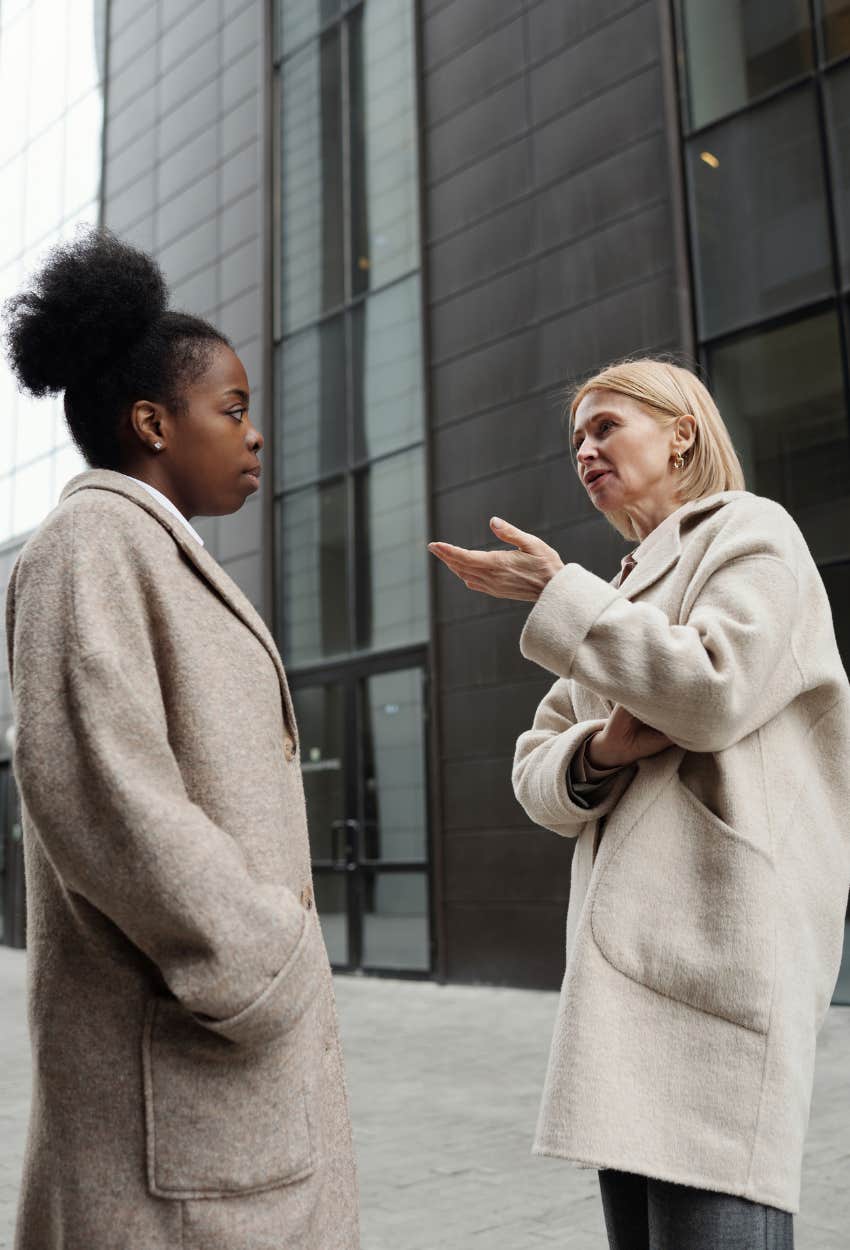5 Signs Someone Who Hurt You Is Putting In The Work To Regain Your Trust
Regaining trust takes hard work.
 taramara78 | Shutterstock
taramara78 | Shutterstock When someone breaks your trust, it can be doubly hard to trust them again. That feeling that you get when you just can’t get over it is not about you learning if you can trust them again but about you doubting your intuition.
So, is it possible for a relationship to be salvaged after broken trust? The short answer is yes. But only if the person who hurt you is willing to put in the work to build that trust back again. The real question is: How do you know if they are even trying?
Couples Coach Julia Woods argued that it's absolutely possible for trust to be rebuilt, but you have to be able to spot the signs that the person who broke your trust is trying their hardest to earn your confidence back.
Here are the five signs that someone who hurt you is actively putting in the work to regain your trust:
1. You start to notice new changes in them
If the person who broke your trust is known for doing things one way and then suddenly they are doing things another way, then that might be a sign that they are trying to show you a new version of themselves.
 DragonImages | Canva Pro
DragonImages | Canva Pro
Little changes can be as subtle as a spouse picking up the wet towel you always complain about or a friend making more of an effort to reach out and see how you're doing. And while these slight changes might not seem like much, Woods pointed out that old habits die hard. So, if you see these subtle shifts, the person is making a concerted effort.
The real question is: Are they doing it just to placate you, or do they sincerely want to change and earn back your trust the right way? Woods noted that there's no real way to tell without examining the other signs.
2. They are more aware of their wrongdoings
There is no way to work on a resolution without accountability. If your friend, spouse, or sibling makes an effort to address their missteps, they are, as Woods put it, "doing the work on a deeper level."
Research from 2022 on repairing trust found that to truly heal a broken relationship requires changed behavior. Acknowledgment is the start of that process.
3. They take responsibility for what they have done
In the cycle of healing, after acknowledgment comes ownership. When someone isn't doing the work to heal broken trust, they make excuses for their behavior or, worse, blame others. However, if they acknowledge what happened, admit where they went wrong, and commit to doing things differently, then you know that they care. Building trust starts by taking personal responsibility for your actions.
 August de Richelieu | Canva Pro
August de Richelieu | Canva Pro
4. You notice that they keep bringing up the transgression
It's hard to talk about an incident as a wrongdoer. So, if the person who hurt you brings it up often, they are trying to heal. The problem that arises here is whether or not the individuals involved are communicating properly. For true healing and resolution, the discomfort needs to be faced head-on with open communication.
Let’s say you are the one who doesn’t want to relive the painful memories of what they did, but they want to talk about it so that the two of you can find a way to move forward. It would be a disservice to yourself if you didn’t talk about it. After all, you can sweep things under the rug all you want, but eventually, you’ll trip over it.
5. They acknowledge the impact it had on you
If they ask you how you feel after the event occurred, then it is their way of recognizing the effect that it had on you.
If they acknowledge that they were the catalyst of that pain and trauma, only then can the two of you move forward. On your end, you have to accept that a person you care about hurt you deeply. That's not easy to do, but it's essential to move past the transgression.
Woods said, "When they show the courage and bravery to hear you communicate about the pain their choices have caused, you can know they are doing the more profound work, and lasting change is likely."
Marriage therapist Darlene Lancer wrote for Psychology Today, "Ask the hurt partner what he or she needs from you and any suggestions about what’s needed to avoid repetition of the behavior. These questions show respect for the person’s feelings and needs and will be appreciated. They go much further than a simple apology."
Sylvia Ojeda is an author with a decade of experience writing novels and screenplays. She covers self-help, relationships, culture, and human interest topics.

